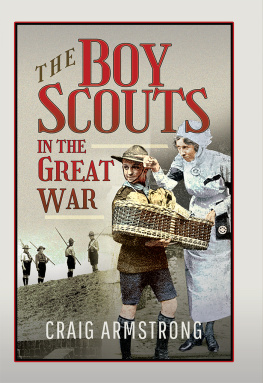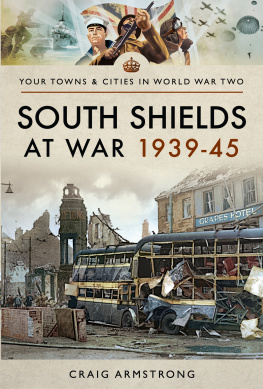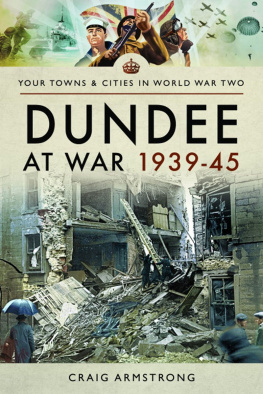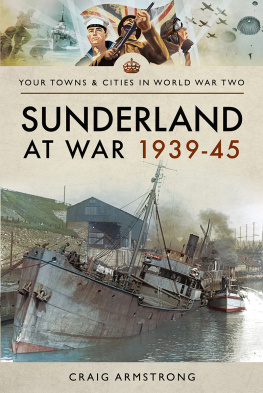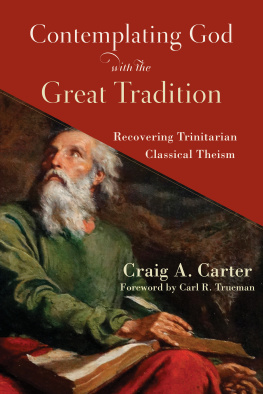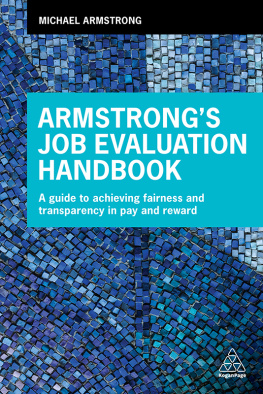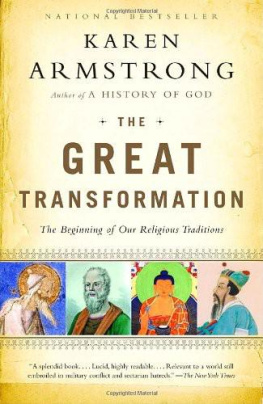First published in Great Britain in 2016 by
PEN & SWORD MILITARY
an imprint of
Pen and Sword Books Ltd
47 Church Street
Barnsley
South Yorkshire S70 2AS
Copyright Craig Armstrong, 2016
ISBN: 978 1 47382 2 085
PDF ISBN: 978 1 47386 6 294
EPUB ISBN: 978 1 47386 6 287
PRC ISBN: 978 1 47386 6 270
The right of Craig Armstrong to be identified as the author of this work has been asserted by him in accordance with the Copyright, Designs and Patents Act 1988.
A CIP record for this book is available from the British Library
All rights reserved. No part of this book may be reproduced or transmitted in any form or by any means, electronic or mechanical including photocopying, recording or by any information storage and retrieval system, without permission from the Publisher in writing.
Printed and bound in England
by CPI Group (UK) Ltd, Croydon, CR0 4YY
Pen & Sword Books Ltd incorporates the imprints of
Pen & Sword Archaeology, Atlas, Aviation, Battleground, Discovery, Family History, History, Maritime, Military, Naval, Politics, Railways, Select, Social History, Transport, True Crime, and Claymore Press, Frontline Books, Leo Cooper, Praetorian Press, Remember When, Seaforth Publishing and Wharncliffe.
For a complete list of Pen and Sword titles please contact
Pen and Sword Books Limited
47 Church Street, Barnsley, South Yorkshire, S70 2AS, England
E-mail:
Website: www.pen-and-sword.co.uk
Introduction
The town of Morpeth is placid, quiet and beautiful. However, between 1914-1918 the town, like most others in Britain, was torn apart by the tragedy of the First World War. Like many Northumbrian towns and villages, Morpeth had a proud military tradition of service, and its record throughout the war for the sheer number of Morpethians who volunteered for service in the army, navy or (later) air force was truly staggering for a relatively small rural market town in sparsely populated Northumberland.
From the first days of the war when the men of the Territorials of the Northumberland Fusiliers and the Northumberland Hussars assembled in the Market Square to be given a rousing send off by the mayor and the people of Morpeth to the raucous celebrations of the Armistice in November 1918, the town remained fervently supportive of the national effort.
Along with sending its men to fight, the townspeople also raised considerable sums of money for the war effort and cared for the men who had been injured and the families who had been left bereft by the loss of loved ones.
Yes, at times it spilled over into jingoism and, yes, the suspicions of foreigners that ran rampant at some points during the war were not attractive, but they were understandable. It is common these days to think of the war as being the ultimate exercise in futility and a needless sacrifice of brave men being led by incompetent generals. At the time, however, the view was quite different. The threat from German militarism seemed very real and when Germany seized ports, it became clear to many that the threat of raids or even invasion was also very real (no less so than in 1940).
The people of Morpeth remained proud of the Morpethians (born or adopted) who made the ultimate sacrifice, and this extended to those who had fought in armies sent by countries of the Empire, or even foreign nationals, such as Mr Amlett (a Frenchman who lived in Morpeth and died as a French infantryman in 1914 after earning the Mdaile Militaire), or former Belgian soldier Eugene Duhem (who died in the workhouse at Morpeth in 1918). The pride taken in those who had perished and in the returned soldiers extended well beyond the war years.
This sense of pride and honour continues to this day with the extremely well-organised Remembrance Sunday commemorations, which take place every year in the town. Still led off by the Morpeth Pipe Band (who, after forming during the war, welcomed the soldiers home at the end of the conflict), the parade includes representatives from many organisations, including the Scouts, Guides, Boys Brigade, civilian services and, of course, the Armed Forces. Before a large crowd assemble at and below the towns cenotaph (built on the part of Morpeth that was the last visible to departing troops), the laying of the wreaths and the silence are incredibly moving.
For the memories of the men and women who lived through this awful conflict, this act of remembrance is both important and necessary. Soldiers, sailors, airmen, civilians; all of them are worthy of our memory, and the sacrifices they made should never be forgotten by any of us.
Acknowledgements
Writing a book like this is a process that involves contributions and suggestions from a number of people. Firstly I must thank my editor, Barnaby Blacker, and the entire team at Pen & Sword for their help and enthusiasm.
The members of Morpeth Antiquarian Society have been of assistance in steering me on to some sources and, in particular, for providing me with an introduction to a number of possible sources of photographs. The society must rank as one of the best in the country in terms of both enthusiasm and expertise. The membership are knowledgeable and keen to research every aspect of the history of the town and district. This leads me on to Mr Keith Crichton, who very kindly sent me copies of, and granted me permission to use, the excellent photo of the Territorials and Hussars in the Market Square in 1914, which provided the perfect cover photograph.
I must also thank the Association of Northumberland Local History Societies (ANLHS) for their advice and willingness to provide contacts for this book and for my other books in the series.
Thanks must also be expressed to Morpeth & District Chamber of Trade who allowed me to give a talk on the town during the war and on my proposed project. I received tremendous support from all members but particularly from John Beynon (then chair) and Geoff Proudlock. The chamber contributes massively to the life of Morpeth by organising Morpeth Fair Day, the Christmas lights, the preparations for Britain in Bloom and many other worthwhile causes.
I would also like to thank the staff of the Morpeth Herald who have remained keen followers of the book, who gave me some welcome publicity back in the summer of 2014 and whose archives have been a rich source of information when researching this book and others in the series.
My colleagues and students, past and present, at both Newcastle and Northumbria Universities, also deserve thanks for their willingness to listen to my ideas and theories. The feedback they provide is always appreciated and valuable.
Most importantly, I would like to take the opportunity to thank my parents, who first gave me an interest in history and who fed my growing interest by enthusiastically taking me to various heritage sites in the incredibly history-rich Northumberland countryside.
Finally, I would be remiss if I did not thank my many Morpethian friends, who have all given advice on sources and anecdotes. Your encouragement and support is always valued. I dedicate this book especially to a few valued Morpethian friends Amanda Bell, Kirsty Pettifer, Colin Wylie, Terry Dixon and the staffs of various public houses and cafes (especially those of The Black Bull, Joiners Arms and Waterford Lodge). Thank you for your support, friendship and encouragement.





